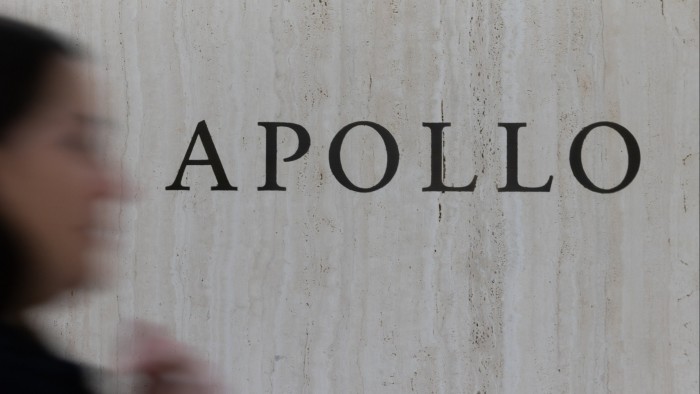Unlock the Editor’s Digest for free
Roula Khalaf, Editor of the FT, selects her favourite stories in this weekly newsletter.
The writer is a former investment banker and author of “Power Failure: The Rise and Fall of an American Icon”
Volatile financial markets, like the ones we face now thanks to America’s ever evolving tariff policies, often create unique opportunities. Think back to what happened in October 2022, shortly after Credit Suisse, the now defunct Swiss bank, announced a major business restructuring and the credit-rating agencies announced they were downgrading the bank’s debt, adding to the turmoil that was engulfing the then 166-year-old financial institution.
One of the immediate steps the bank took in response to the waning confidence in it was to accelerate the sale of the bulk of one of its crown jewels, the so-called securitised products group, a large asset-based lending business that created — or “originated”, in financial jargon — products such as mortgages and auto loans and sold them to investors.
The business was beloved inside Credit Suisse, and one of its most profitable. But sometimes the market forces you to do things you don’t want to do, and the sale of this business was one of those times.
As ever, the always opportunistic Apollo Global Management, the alternative asset manager, was only too happy to pounce on Credit Suisse’s growing financial distress. That is Apollo’s DNA. In short order, before other, more highly regulated financial institutions could act, Apollo cut a deal with Credit Suisse to buy the New York-based business.
Apollo bought it all for a slight discount to the par value of the loan portfolio, according to one insider. It renamed the business Atlas SP and set it up as a separate unit, with Apollo as the majority owner and Mass Mutual, the big insurance company, and the sovereign wealth fund Abu Dhabi Investment Authority as minority investors.
Since the deal closed in February 2023, Atlas SP has become the cornerstone of Apollo’s ambitious plan to remake Wall Street, through the market for private credit. “When you look back at really, really strategic transactions for this firm, that’s got to be up there,” Apollo president Jim Zelter told me in December, “because it really was a first massive foray of an origination business of that scale, owned by a non-bank.” He said he jokes with Marc Rowan, Apollo’s chief executive, that five years ago they didn’t even know how to spell Atlas.
Now, it’s central to the firm’s core strategy of increasing the amount of private credit that Apollo originates to generate the income-producing assets it needs to cover the liabilities generated by Athene, Apollo’s wholly owned annuity business. It captures the spread between the two as profit.
Of Apollo’s $785bn of assets under management, some $641bn is private credit, with the balance being private equity. Apollo has long preached that there is less risk in its business of the kind of deposit runs and loss of investor confidence seen by some banks because the duration of its assets and liabilities are both long-term and closely matched. The message is starting to get out. The company has a market value of $86bn, up more than 250 per cent in the past five years, although its stock was hit hard in the recent broader market turmoil. After a recent rally, it still down around 13 per cent so far in 2025.
Apollo originated some $220bn of assets in 2024 and has the ambition to raise that to $275bn in under five years. Atlas SP is the key to achieving that aspiration. It originated more than $40bn of assets last year with a goal to do $50bn this year. Atlas SP is one of the 16 loan-origination “platforms” that Apollo either owns or has a majority equity investment in but has a particular strategic importance. Atlas SP has 300 clients, and each of those borrowers is an originator of small loans itself, giving the business tentacles across a huge swath of American businesses.
In many ways, Apollo’s origination businesses, with Atlas at the centre, has helped fill part of the void the old GE Capital left after it was dismantled and sold off a decade ago. It now provides all sorts of loans for inventory and equipment, vehicles and fleets, mortgages, investment funds and for building out digital infrastructure. The Atlas deal, John Zito, Apollo’s co-president, told a Grant’s Interest Rate Observer investor conference a year ago, “will be looked at as probably the most innovative M&A transaction over the last five years”.
At the moment, the future is here, and it seems to be working just fine. The question is: Will there be a reckoning for private credit and, if so, when will it be, and what will cause it? In a May 2 Bloomberg interview, Robert O’Leary, the co-CEO of Oaktree Capital said some limited partners in private credit funds, anticipating a recession, have already started selling their stakes at discounts as large as 50 cents on the dollar, and it could get much worse, he said, if, and when, the real forced selling begins.


